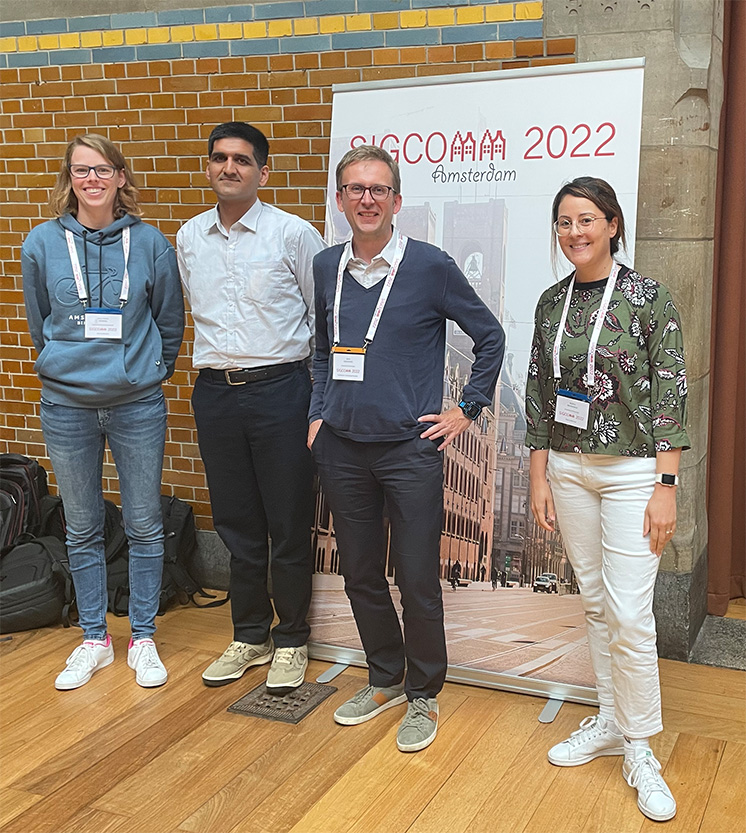
Saad Saleh presented a novel memory architecture TCAmMCogniGron at the IEEE International Conference on Rebooting Computing, 2022. The proposed architecture TCAmMCogniGron is designed to replace a highly energy intensive memory, named Ternary content addressable memory (TCAM), used in almost all current network switches and routers to store processing rules and forward traffic through the Internet. TCAmMCogniGron enables the general purpose integration of special energy saving materials, named Memristors, which allow to keep the processing rules in form of a state, often represented in form of resistance, and this state is non-volatile. In collaboration with Anouk S. Goossens and Tamalika Banerjee from Zernike Institute for Advanced Materials characteristics of a physical memristor built at the CogniGron research center were studied. The findings demonstrate the high energy efficiency and extreme resiliency of the proposed design. The research concluded that in addition to supporting non-volatile state so-called match and mismatch operations require only about 1–16 femtojoules of energy.
Interested to learn more about the potential of memristive devices to a more energy-friendly Internet, please check out the following research works including a recent survey studying the use of memristive devices for performing energy efficient operations using novel computing architectures in the Internet.
This research is supported by the Groningen Cognitive Systems and Materials Research Center (CogniGron), University of Groningen.
- Saad Saleh, Anouk S. Goossens, Tamalika Banerjee, and Boris Koldehofe. TCAmMCogniGron: Energy Efficient Memristor-Based TCAM for Match-Action Processing. In Proceedings of the 7th International Conference on Rebooting Computing (ICRC 2022). IEEE, 2022. Available at: https://research.rug.nl/en/publications/tcaimimsupcognigronsup-energy-efficient-memristor-based-tcam-for-
- Saad Saleh and Boris Koldehofe. On Memristors for Enabling Energy Efficient and Enhanced Cognitive Network Functions. IEEE Access, 34 pages, 2022. DOI: https://doi.org/10.1109/ACCESS.2022.3226447
